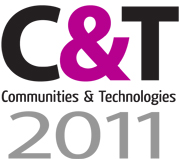School-community engagement: a critical approach to involving young people in urban planning
School-community engagement derives from the notion that when schools and communities work together, students have a richer educational experience. It gives young people opportunities to develop, apply and refine valuable skills and knowledge whilst at the same time increasing their capacity to participate in and contribute to the world around. A critical approach to school-community engagement will be taken to investigate the participation of a group of high school students in an urban planning project.
As an important group of stakeholders in the community, the students participating in this project will contribute creatively to an urban renewal site. The site known as the Lower Mill was a timber mill employing the most people in the town until it was closed under the State Government Regional Forestry Agreement. Students are acting as co-researchers and producers of a multimedia resource developed through interviews, workshops and collaborative learning by investigating stories relating to the site and the former workers of the timber Mill. These stories, as well as stories of the future, guide the students’ understanding and ideas for the design and development of a ‘Heritage Journey’ existing in a real or virtual environment. The designs will be presented to the Lower Mill Board, an advisory Board to the Sunshine Coast Regional Council, for possible inclusion at the Lower Mill site.
Adults have traditionally undertaken Urban/Regional Planning at a community and government level; within this study the future users of the site, the students, take part in the decision making and future planning of the space. Theories of space developed by Henri Lefebvre (1991) and David Harvey (2000) will inform the analysis and discussions of the way in which young people elucidate space and how society interprets space.
The study contributes to the growing research into the participation of young people in community-based research. It will draw on the principles that underpin this type of research and will document the effectiveness and the challenges of this approach. Through the use of this innovative methodology the study will make an original contribution to current knowledge about the participation of young people in urban planning.
Team
- Ruth Greenaway (PhD Candidate)
- Prof. Kerry Mallan (Principal Supervisor)
- Prof. Greg Hearn (Associate Supervisor)
- Dr Michael Dezuanni (Associate Supervisor)
Partners



